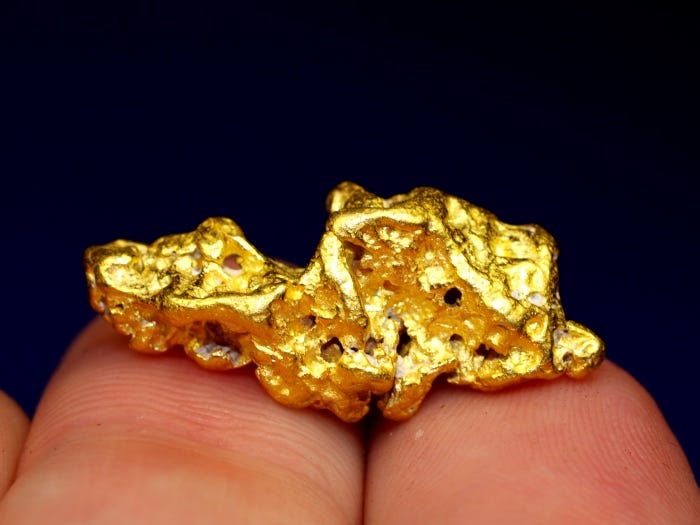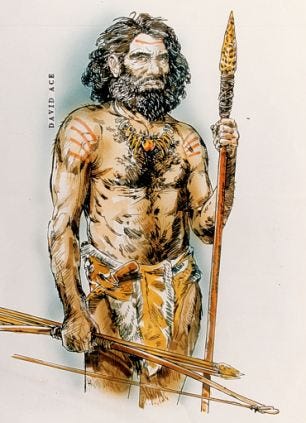Thousands of years before the dawn of civilisation, as prehistoric man hunted and gathered his way through the Stone Age, he came across 6 metals - the six native metals, which occur in nature in a relatively pure state: silver, tin, lead, iron, copper and gold.
He found gold in river beds - nuggets, mixed in with sediment, relatively easy to collect and shape.
Man adorned himself with it - as well as with bones, teeth, precious stones and shells. This was long before the Bronze Age and the discovery of smelting, when he started using copper, tin and lead.
The oldest records we have of man using metal are fragments of gold in Spanish caves inhabited by Paleolithic Man, dating back perhaps as much as 40,000 years. The first records of man using copper came tens of thousands of years later. Lead, tin and iron’s first use came even later.
The beauty of gold - dense, glimmering, shining - as well as its imperviousness no doubt captivated Stone Age Man the same way it does his 21st century descendants. We are the same animals, after all, with the same instincts.
Gold is symbol of power and status, and of reproductive fitness - look at me I have access to this shiny substance.
Like shells, bones and stones, even hand axes - gold was not only used as decoration, but as reward - as an expression of gratitude, as a prize for completing a task, for heroic deeds, as a tool in barter and exchange. In other words, it functioned as early money.
Even in prehistory gold was performing the role it has always performed - and always will: to store and display and exchange value.
Stone Age man had the same instincts we do today - the same urges, desires and compulsions. Survival is the most basic compulsion. You have to find water, food and shelter, for yourself and for those close to you.
Then there is the survival of your species: you have to reproduce. If you survive, thrive and reproduce, so does the species as a whole grow stronger. Our self-interest is good for the species as a whole.
And so we have the same basic instincts: fear, desire, love, hate.
What often goes unmentioned is our instinct for beauty. What we find beautiful is often good for us in some way. It is why man has always sought beauty.
We are instinctively repulsed or alarmed by things that are dangerous – snakes, spiders, a cliff edge, loud noises. Things that aid our survival we find beautiful - the sound of running water, a fit and healthy potential mate, an open landscape with water, varied animal, bird and plant life, good visibility and shelter.
With its unique characteristics, beautiful yet impervious, gold found special status in our psyche even before the dawn of civilisation. Our prehistoric ancestors cherished it before they were able to speak.
Our instinct for gold, the emotion it inspires, is as eternal as the metal. It is a primal instinct.
Beauty is truth, truth beauty,—that is all
Ye know on earth, and all ye need to know.
John Keats
ADDENDUM: Good point from tinopener1


A version of this article originally appeared at Glint.

















Why our instinct for gold is primal